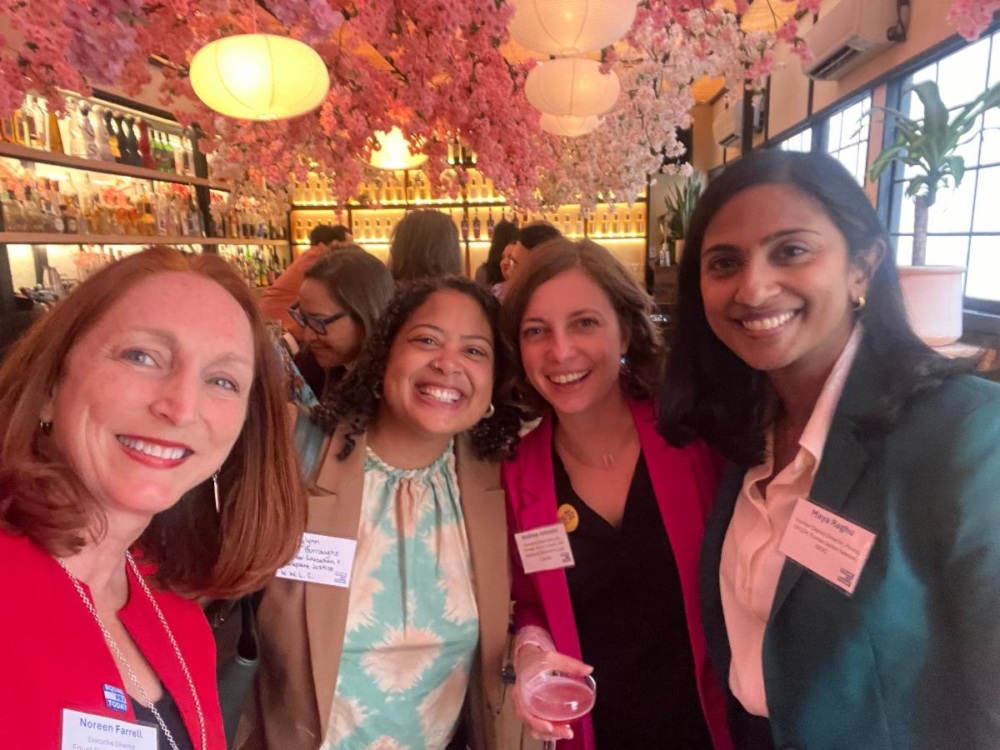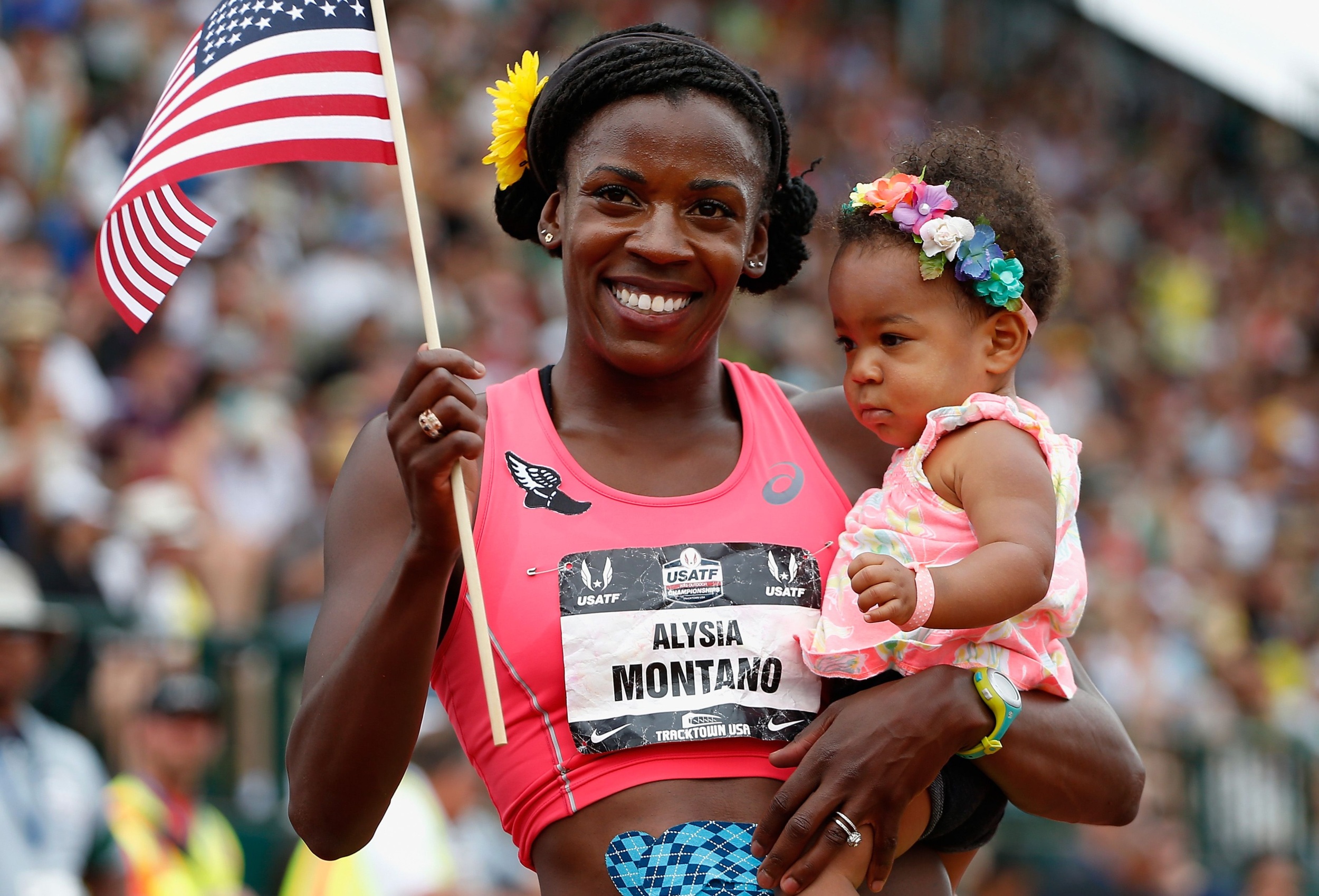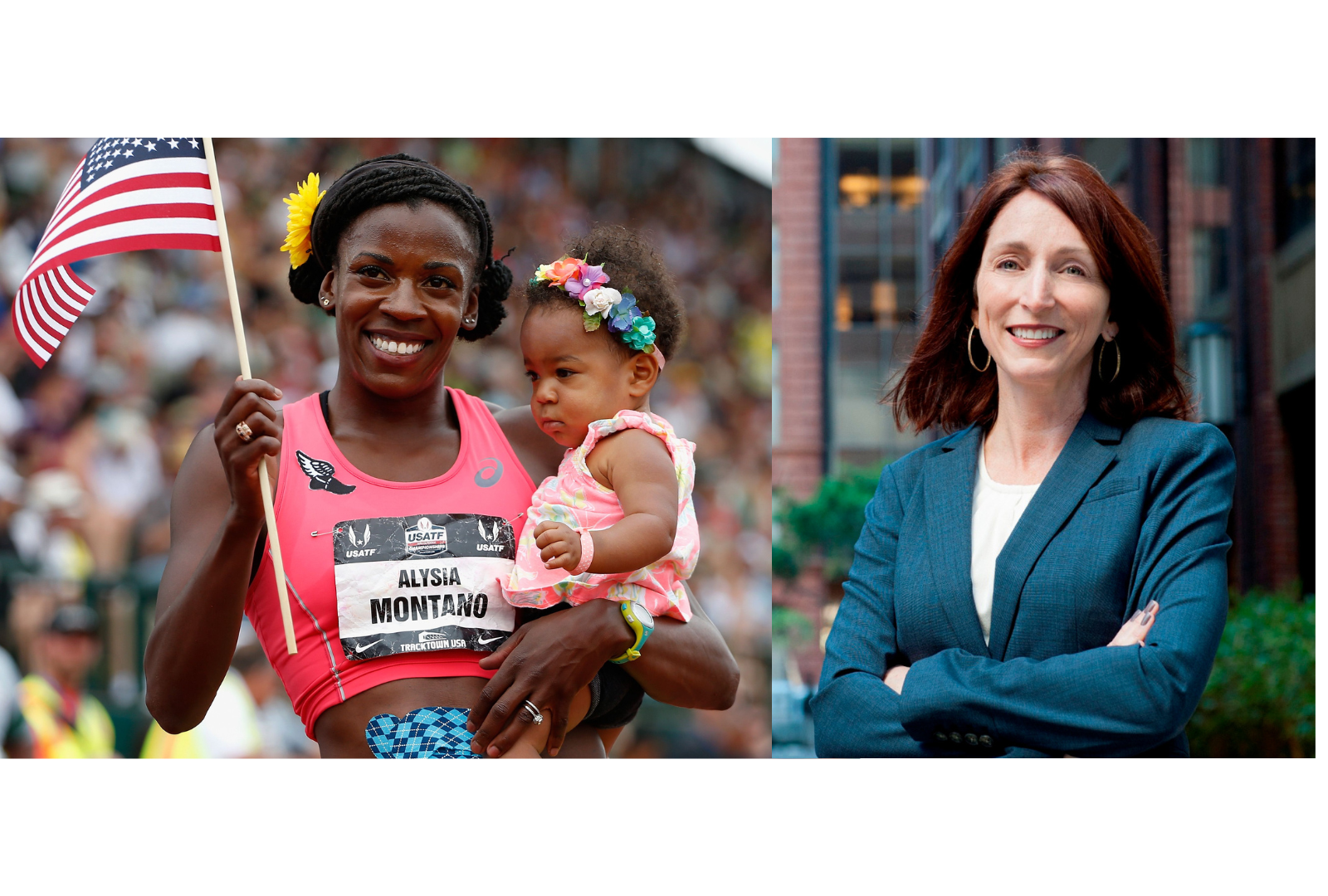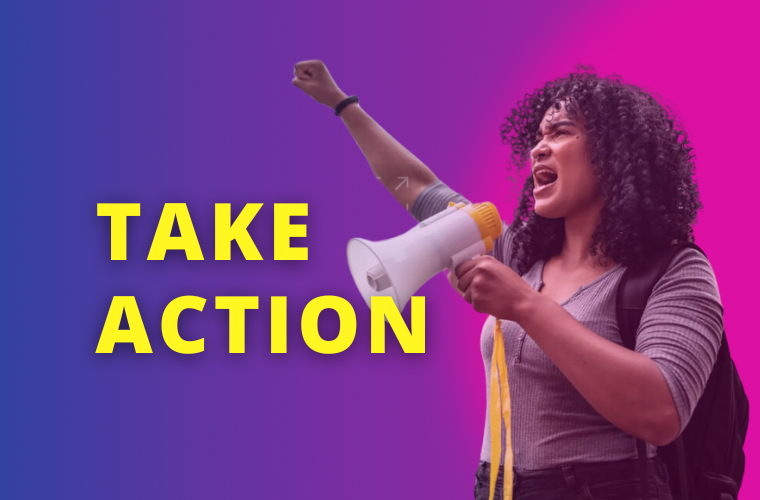

Mom deserves the gold: The Olympics & Mom’s Equal Pay Day

By Noreen Farrell and Alysia Montaño
"Many athletes report feeling pressure to choose between their careers and starting a family, a dilemma rarely faced by their cis male counterparts."
By Noreen Farrell and Alysia Montaño
The 2024 Paris Olympics made history as the first Olympic games to achieve full gender parity in athlete participation. This milestone is a significant leap forward in the quest for gender equality in sports, a journey that began more than a century ago when women were first allowed to compete in the modern Olympics. We celebrate this achievement, but must also acknowledge that true equality in sports (and any job) isn’t just a numbers game. While representation matters, an equal opportunity to succeed requires more.
Team USA brought 16 mothers to the Paris Games, which featured the first ever Olympic Village nursery. Despite these strides, U.S. Olympic structures still struggle to fully embrace and support pregnant and parenting athletes, highlighting the crucial gap between symbolic progress and practical support for women in sports.
Pregnancy and childbirth significantly impact an athlete’s body and training regimen, often requiring extended periods of recovery and adaptation. Additionally, the demands of caring for young children still fall largely on women, taking time away from competition and sponsorships. This often has severe financial implications, especially in sports where an athlete’s peak earning potential is limited to a few short years.
The demands of caring for young children still fall largely on women, taking time away from competition and sponsorships.
Many sponsors, coaches, media, and others involved in elite sports continue to equate pregnancy with injury. This is despite the fact that many athletes are able to compete at high levels up to the final months of their pregnancies, including one of this piece’s co-authors, Alysia, who competed in 2014 and 2017 while 8 and 5 months pregnant, respectively. Yet companies will pause sponsorship contracts for athletes during pregnancy — including pay. Moreover for childbearing athletes, taking unpaid time off for pregnancy and early childcare can result in missed qualifying events, lost sponsorships, and a struggle to regain peak form.
While advocates push for national paid family leave mandates, momentum is slow and the policies sought may not aid many elite athletes. While Equal Rights Advocates helped pass the nation’s first state paid family leave law in California 23 years ago, it has yet to become federal law. Consequently, the U.S. remains one of only six countries in the world without a national paid parental leave program. Importantly, the current push for legal change extends protections to employees only. While professional athletes employed by sports franchises stand to benefit, elite athletes with sponsor contracts will not.
High-profile mother-athletes have spoken out about these barriers, but there is still a tremendous amount of work to be done. Many athletes report feeling pressure to choose between their careers and starting a family, a dilemma rarely faced by their cis male counterparts. Some elite mother athletes, who are still paid significantly less than men in nearly every sport, say they have to work side jobs to pay for childcare. These barriers not only limit the choices available to mothers and gender-expansive people in sports, but also perpetuate harmful stereotypes about the capabilities of mothers in all fields.
Many athletes report feeling pressure to choose between their careers and starting a family, a dilemma rarely faced by their cis male counterparts.
A national paid family leave platform requiring paid maternity and family leave for elite athletes would be a game-changing step toward true gender equality in sports. Such policies would allow athletes to plan their families without sacrificing their careers, and help ensure financial stability for parents across the country. While pregnancy itself should not be equated with injury, there is real danger in pushing women to return to training or work too soon after childbirth because the system does not support them physically, financially, and emotionally. Modeling inclusive policies in elite athletics would send a powerful message that motherhood and professional excellence are not mutually exclusive, challenging long-held stereotypes and inspiring future generations.
The International Olympic Committee, national sporting authorities, and athletic companies have a crucial role to play in this effort. By mandating paid family leave policies for athletes, these organizations can set a new standard for gender equality in sports. Author Alysia’s company/organization &Mother has created a comprehensive gold standard for maternal contracts that all sporting organizations should implement.
In April 2024, following &Mother’s lead, USA Track & Field stepped up, announcing that it will expand its existing maternity support system to give athletes more time to recover and more chances to requalify for their funding. Change cannot end there. A broader cultural shift is needed. This includes challenging media narratives that still frame motherhood as a career-ending event for athletes, providing more visibility to successful pregnant and parenting athletes. It also involves creating training and competitive environments, like those Athleta has sponsored in partnership with &Mother, that provide free childcare for athletes and accommodate parents’ needs.
As we applaud the gender parity achieved at the 2024 Olympics, let’s be clear that this is just one step in a longer journey. True equality in sports means creating an environment where all athletes, regardless of gender or family status, can thrive. By implementing paid family leave and fostering a culture that embraces mother-athletes, we can ensure the spirit of equality embodied in the Olympic ideal extends beyond the playing field and into all aspects of an athlete’s life.
Noreen Farrell is the Executive Director of Equal Rights Advocates, a national nonprofit advancing gender, racial, and economic justice. Farrell is a nationally recognized civil rights attorney and movement leader, who has taken on pregnancy discrimination before the U.S. Supreme Court. Farrell helped implement the nation’s first state paid leave law and now leads campaigns advancing gender justice policy reforms across the nation.
Alysia Montaño is an Olympic and World Medalist, a seven-time USA Track & Field National Champion, Author, Entrepreneur, Founder; President & CEO of &Mother and a mother of three. Montaño graduated from the University of California at Berkeley. As an author, entertainer, spokesperson, and entrepreneur she has channeled her gift for inspiring others to demand for and make change while demonstrating her skills for brand development and business, thus allowing her to found the non-profit &Mother, in which its mission is to break-down barriers that limit a woman’s choice from pursuing and thriving in her career and motherhood.
Stay Connected & Take Action
- Get the Latest News & Information Sign up for Email Updates
- Sign Up for Action Alerts Join the Action Team
- Follow Us


